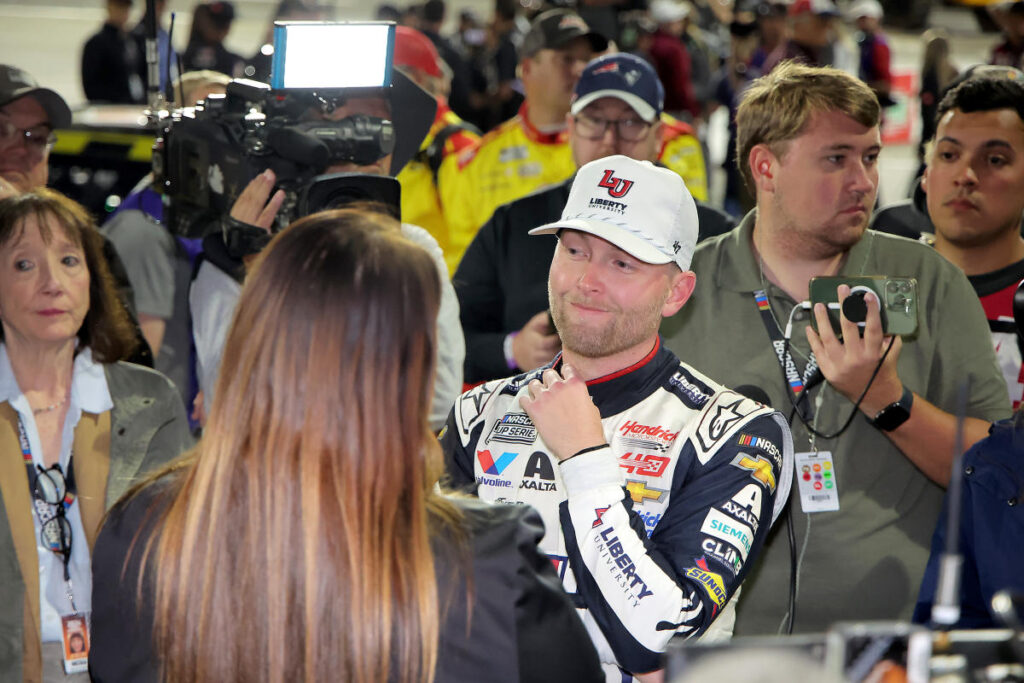NASCAR is at a crossroads, needing a significant overhaul of its points system to address the flaws demonstrated in the recent playoff events, particularly at Martinsville. The current playoff format has resulted in questionable competition strategies, where drivers have prioritized tactical advantages over a genuine effort to race against each other. Incidents such as Chevrolet drivers intentionally refraining from passing William Byron during critical laps, along with a chaotic sequence involving Christopher Bell and Bubba Wallace, exemplify the manipulative dynamics at play. After some controversial race calls and violations, including a safety rule that penalized Bell’s advance and reinstated Byron, the integrity and fairness of the system came under scrutiny.
Since its major shift in 2004, NASCAR has seen its playoff structure adapt numerous times, starting with a 10-race postseason that morphed into a format designed to highlight the sport’s best drivers through a series of eliminations. Despite its initial appeal and success in attracting viewership during its early years, the entertainment value has waned as the racing community has become adept at exploiting the established parameters. The introduction of stage points and the subsequent expansion of the playoff format from 10 to 16 drivers have created a system where small sample sizes can drastically influence outcomes, often leading to manipulated outcomes instead of pure racing meritocracy.
The events at Martinsville highlight not just specific driver behaviors but also a systemic failure in NASCAR’s design. The behavior exhibited by drivers like Chastain and Dillon, allowing Byron to coast rather than compete against him directly, reflects a lack of competitive urgency. This erratic behavior severely undermines the authenticity of the racing experience and raises concerns about NASCAR’s long-term viability as an engaging spectator sport. By continuing to prioritize tactical advantages, teams effectively render competition ineffective, which resonates badly with fans who favor actual racing over strategic maneuvering.
The sport’s changes over the last two decades were once hailed as innovative but now seem outdated, especially in light of declining viewership numbers. Ratings from playoff races have declined to a point where they only attract a fraction of the audience compared to the peak viewership of the early 2000s. The juxtaposition of casual fans with strategic play has left NASCAR’s audience increasingly alienated, emphasizing the need for a return to a format that offers both excitement and competitive integrity across a full season, rather than a limited playoff stretch.
To revitalize interest among casual viewers and maintain audience engagement, NASCAR should consider a complete restructuring of its playoff system. The proposition of reverting to a 10-race playoff might offer some balance, while adopting a season-long points systems akin to Formula 1 or IndyCar would fully embrace the ethos of pure racing meritocracy over tactical advantages. These alternatives not only promise more engaging narratives but also maintain the essence of racing as an episodic narrative where the top driver emerges through consistent performance rather than through a series of manipulated laps in the playoffs.
In conclusion, NASCAR’s current playoff system is becoming increasingly untenable, muffling the competitive spirit that defines motorsports. The integrity of races is compromised when tactical manipulation overshadows athletic performance, and when teams successfully exploit a system designed for fair competition. NASCAR must adapt to the evolving sports landscape by considering a more robust and authentic points format, one that values seasonal consistency and rigorous competition, ultimately ensuring that the best driver is crowned based on merit and not manipulation. By doing so, NASCAR would not only safeguard its legacy but also reinvigorate interest amongst dedicated fans and potential newcomers alike, fostering a more engaging and entertaining racing environment.

